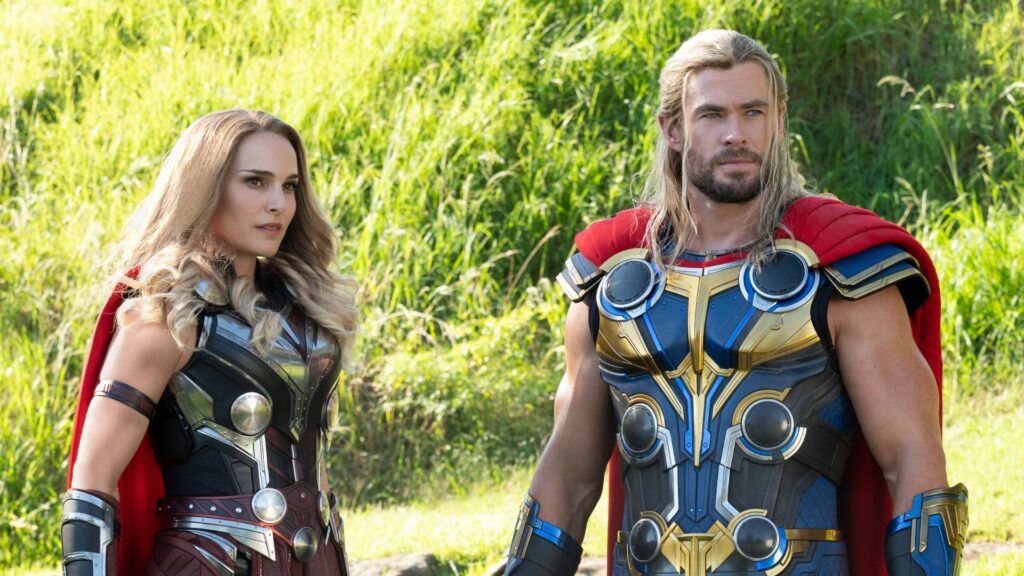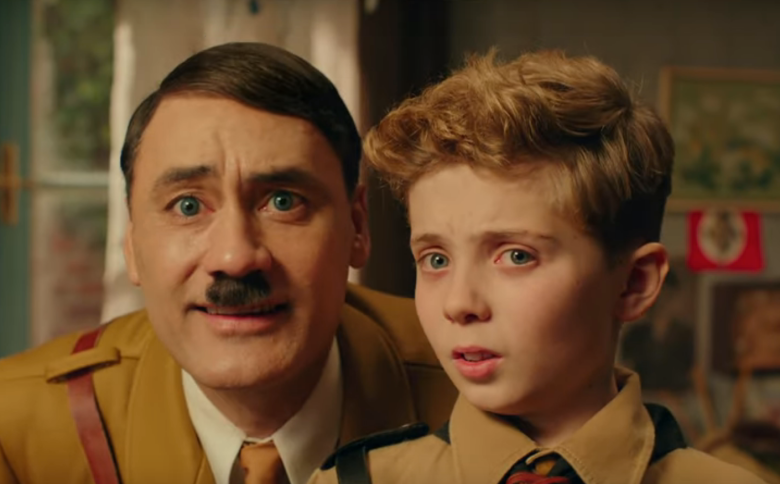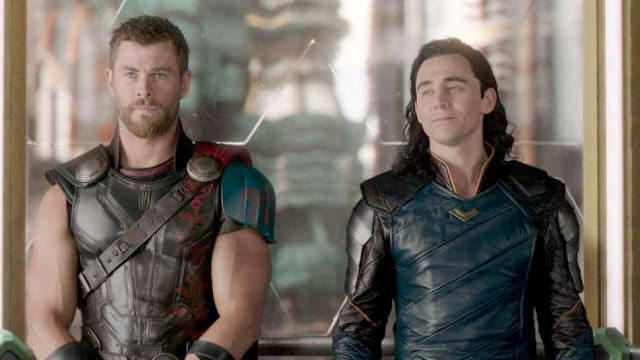Thor: Love and Thunder: Another Fray in Paradise

In opening narration that’s akin to the “Previously on” recap of a TV show, the blue rock-being Korg reminds viewers of Thor: Love and Thunder that Loki, the titular god’s brother, is dead; in fact, Thor has witnessed him die repeatedly. Death tends to be temporary in the Marvel Cinematic Universe—Loki’s own demise became the springboard for an ongoing streaming series—and as you watch this latest comic-book extravaganza from Taika Waititi, you may find yourself hoping for a miraculous resurrection, if only so the sly actor Tom Hiddleston might enliven the mechanized hullabaloo. You don’t get one, but the impish wit that was the god of mischief’s trademark still sometimes manages to shine through, penetrating the fog of stale plotting and monotonous fighting. Even if we’re collectively suffering from superhero fatigue (this represents the MCU’s 29th theatrical release), not everything here is old hat; for example, this is the first Marvel picture to feature a love triangle between a viking, a hammer, and an axe.
The axe, called Stormbreaker (“These weirdos all gotta have a name now”), is the jealous type; when it spies Thor (Chris Hemsworth, obviously) looking longingly at Mjölnir (the hammer, less obviously), it glides disapprovingly into frame, like a suspicious housewife who caught her husband peeking at his ex’s Instagram. Love and Thunder’s persistent insouciance can feel phony at times—a runner about the heroine workshopping a catchphrase is practically yanked from last year’s Free Guy (where Waititi had a small role)—but its smirking charm at least bears the stamp of genuine authorship. It is neither as funny nor as dynamic as its predecessor, the broadly appealing Ragnarok, but it nonetheless harnesses the same spirit of cheerful frivolity. Read More


